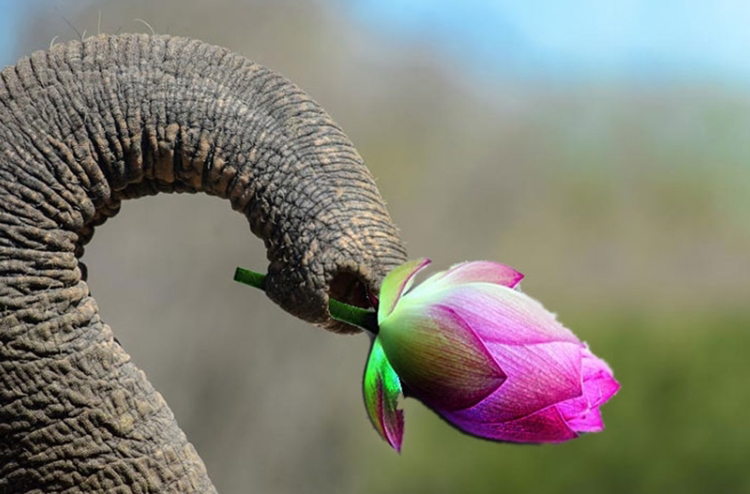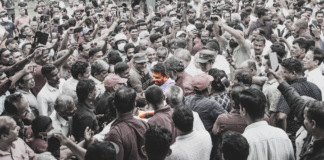By KASSAPA
Political circles are abuzz with the news that elections to local government bodies will be held early next year, possibly in late February. Close on the heels of this development is feverish speculation that President Ranil Wickremesinghe’s United National party (UNP) may contest in alliance with the Rajapaksas’ Sri Lanka Podujana Peramuna (SLPP).
Hardly surprising, one might argue, considering that Wickremesinghe has been comfortably cohabiting with the acolytes of the Rajapaksas for almost five months now with hardly a hiccup. In fact, Basil Rajapaksa, whose right to re-enter Parliament was taken away from him by Wickremesinghe bulldozing the 20th Amendment to the Constitution, purred the other day about Wickremesinghe: “we made the right choice, we can be out and about today because of him”.
Basil Rajapaksa was referring to the wave of public anger towards the Rajapaksas during the months long ‘aragalaya’ standoff which forced the resignations of Basil, Mahinda and finally Gotabaya from their positions as Finance Minister, Prime Minister and President respectively and the subsequent torching of homes of SLPP MPs.
Basil Rajapaksa has begun reorganising the ‘pohottuwa’ party. On another front, there is a campaign to hold a series of rallies with former President Mahinda Rajapaksa as the main attraction. The first meetings have already been held in Kalutara, Nawalapatiya and Puttlam– but the series appears to have stalled after mixed reactions from the public.
To be fair, Basil Rajapaksa, despite all his faults and failings, has told the rank and file of the SLPP that they must ready themselves for an election, however unpalatable the result may be. Even if the party loses badly, it can only improve from there on, he has reportedly said.
Wickremesinghe on the other hand, is not keen on elections and understandably so. Despite his elevation to the Presidency under rather fortuitous circumstances, the UNP has not seen a meteoric rise in popularity since then. That is partly because Wickremesinghe has been acting in a petty, partisan way and ridiculing the ‘aragalaya’ that brought him to power.
His attempts to subvert the Samagi Jana Balavegaya (SJB), lure its stalwarts and isolate Sajith Premadasa have won him no friends either. As a result, those UNPers who opposed the SLPP regime and supported the SJB have largely stayed with the party and not returned to the parent party just because Wickremesinghe became President. There is also considerable concern that Wickremesinghe will have new legislation introduced that could block the speedy conduct of local elections.
What then has prompted this speculation about the UNP and the SLPP acting in concert at a future poll and what does it signal to the general public? The answer is obvious: it is not because Wickremesinghe and the Rajapaksas love each other so much but simply because it conveniently serves the purposes of both camps.
For Wickremesinghe to survive the rest of his term without having a Parliament hostile towards him, he needs the support of the SLPP. For those SLPPers holding ministerial rank and all the attendant perks and privileges that go with it, they need Wickremesinghe’s goodwill to stay in power because he can dismiss them with the stroke of a pen. It is a classic ‘you scratch my back, I’ll scratch yours’ situation.
It is more of the same, when it comes to facing elections. Both the Rajapaksas and Wickremesinghe are well aware that public support for their respective parties is in the doldrums right now. With a miraculous economic turnaround not on the horizon and the corruption allegations against the former regime not being acted upon, it is likely to stay that way until the next local, provincial, presidential and general elections are held. So, if the UNP and the SLPP contest separately at the next local election, they will both be soundly defeated and that will affect their chances at more important elections that will follow.
Therefore, it makes practical sense for the SLPP and the UNP to contest ‘in concert’ at the local council elections. What form this will take is uncertain as yet: whether they will contest under a single list or whether they will pick and choose which party contests which local body etc. is yet to be worked out but there definitely is an appetite for a ‘joint approach’ to the local polls, if only to avoid total embarrassment. That is why Ranil Wickremesinghe is enjoying hobnobbing with the ‘pohottuwa’ stalwarts he despised not so long ago and why Basil Rajapaksa is saying the SLPP ‘made the right choice’ in picking Wickremesinghe to support for President.
For Ranil Wickremesinghe in particular, he has nothing to lose and everything to gain. His sights are firmly set, not on restoring a semblance of normality to the economy but firstly on completing his term as caretaker President until November 2024 and then using that term as a platform to make what is hopefully a final bid to become an elected President at the next presidential election.
Having observed Wickremesinghe’s modus operandi for the past several decades, it is certain that he will go to any length to achieve these objectives. He is entitled to carry on as President until November 2024 and is not obliged to dissolve Parliament until August 2025. If Wickremesinghe enters the next presidential election with the current Parliament, the SLPP will virtually have no choice but to support him. They too will be happy to do so with the understanding that he will pave the way for Namal Rajapaksa to take over in 2029.
A UNP-SLPP alliance, if it does eventuate, will of course make a mockery of what each party has stood for in the past. Nevertheless, both Wickremesinghe and the Rajapaksas know very well that politics is not about consistent policies and principles, it is about being on the winning side at all times.
The opposition shouldn’t be too worried about this. For the SJB, if they strategise correctly, it could be a blessing in disguise because it will convince traditional UNPers who cannot tolerate teaming up with the SLPP to gravitate towards the SJB.
Ranil Wickremesinghe once said that politics is not a sprint, it is a marathon. We may think he is nearing the end of his marathon but from his perspective, he is yet to start his race.





